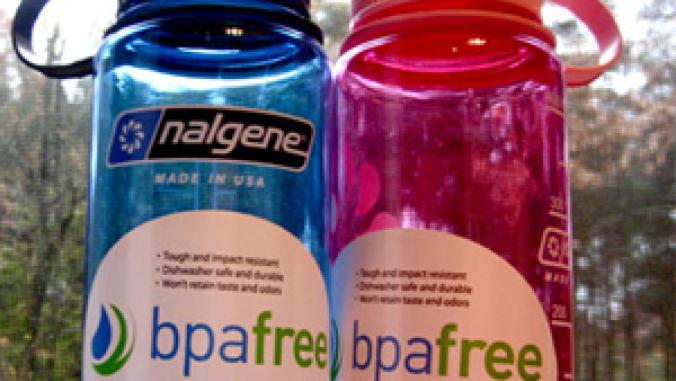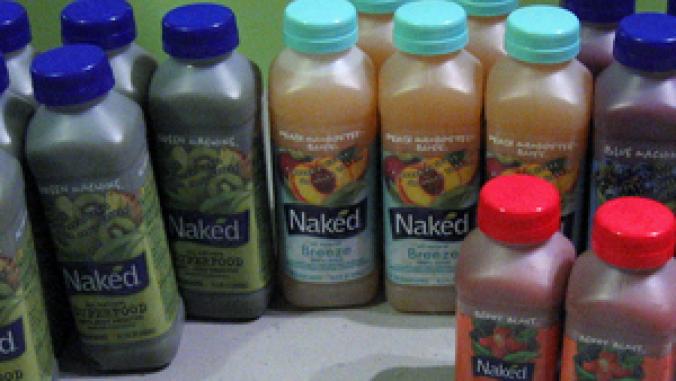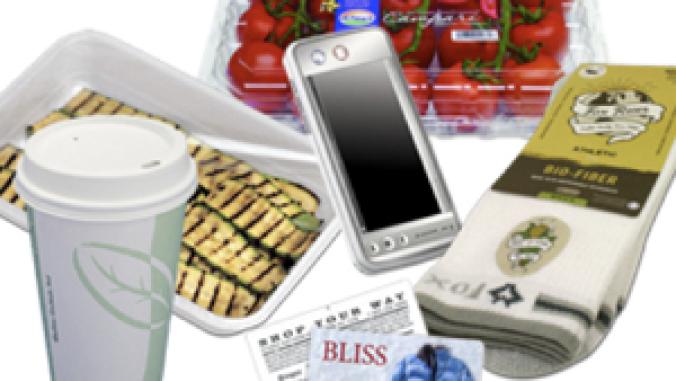U.S. Lawmakers to Renew Fight Against BPA
Legislators are vowing to continue efforts to ban bisphenol A in certain products after lab tests found the chemical leaches out of a range of microwavable containers.

Since the Milwaukee Journal Sentinel reported that a range of food containers and packaging leach out bisphenol A (BPA) after heating, state and federal lawmakers have said they will continue efforts to ban some uses of BPA.
The newspaper chose 10 products - including microwavable bowls, containers and frozen food trays - and paid for a laboratory to test if BPA comes out of the plastic when they're heated. XeroAnalytical LLC, run by University of Missouri BPA researcher Frederick vom Saal, found that all of the items leach out BPA. The purpose of the study was to find out how much BPA could be present in the typical diet of a baby or small child.
The Journal Sentinel calculated how much BPA children of different ages and weights would ingest by eating from the items, and compared those figures to BPA studies, finding 17 studies that showed the amounts of BPA put out by the products caused genital defects, behavioral changes and abnormal development of mammary glands in laboratory animals.
Based on the findings, Rep. Edward J. Markey (D-Mass.) plans to reintroduce a Congressional bill that would ban BPA from food and drink containers, and Sen. Charles Schumer (D-N.Y.) will revive his fight against BPA in children's products, according to the newspaper. Wisconsin state Sen. Julie Lassa is working on legislation that would ban BPA in kid's products, which would make Wisconsin the 14th state to propose a BPA ban.
Just last month Canada officially declared BPA a toxic substance and is taking public comments on a proposed plan for dealing with BPA, which includes banning the importation, sale and advertisement of baby bottles that contain BPA, lowering the amount of BPA in other items like formula containers and limiting the amount of BPA released into the environment.
Ever since Health Canada first announced results of a BPA study, numerous retailers have pulled BPA items - mostly water bottles and baby goods - and product makers started creating BPA-free alternatives, due to expected government regulation, customer demand or health worries.
The majority of concern about BPA is centered on its possible effects on babies and small children, since they cannot metabolize BPA as efficiently as adults, and when they do ingest BPA, due to their small size, they receive a more concentrated amount of it.
U.S. National Toxicology Program studies have expressed concern for the chemical's possible effects on fetuses, newborns and young children. Although the Food and Drug Administration has declared BPA safe, it has reopened its examination of the chemical.
The newspaper chose 10 products - including microwavable bowls, containers and frozen food trays - and paid for a laboratory to test if BPA comes out of the plastic when they're heated. XeroAnalytical LLC, run by University of Missouri BPA researcher Frederick vom Saal, found that all of the items leach out BPA. The purpose of the study was to find out how much BPA could be present in the typical diet of a baby or small child.
The Journal Sentinel calculated how much BPA children of different ages and weights would ingest by eating from the items, and compared those figures to BPA studies, finding 17 studies that showed the amounts of BPA put out by the products caused genital defects, behavioral changes and abnormal development of mammary glands in laboratory animals.
Based on the findings, Rep. Edward J. Markey (D-Mass.) plans to reintroduce a Congressional bill that would ban BPA from food and drink containers, and Sen. Charles Schumer (D-N.Y.) will revive his fight against BPA in children's products, according to the newspaper. Wisconsin state Sen. Julie Lassa is working on legislation that would ban BPA in kid's products, which would make Wisconsin the 14th state to propose a BPA ban.
Just last month Canada officially declared BPA a toxic substance and is taking public comments on a proposed plan for dealing with BPA, which includes banning the importation, sale and advertisement of baby bottles that contain BPA, lowering the amount of BPA in other items like formula containers and limiting the amount of BPA released into the environment.
Ever since Health Canada first announced results of a BPA study, numerous retailers have pulled BPA items - mostly water bottles and baby goods - and product makers started creating BPA-free alternatives, due to expected government regulation, customer demand or health worries.
The majority of concern about BPA is centered on its possible effects on babies and small children, since they cannot metabolize BPA as efficiently as adults, and when they do ingest BPA, due to their small size, they receive a more concentrated amount of it.
U.S. National Toxicology Program studies have expressed concern for the chemical's possible effects on fetuses, newborns and young children. Although the Food and Drug Administration has declared BPA safe, it has reopened its examination of the chemical.




